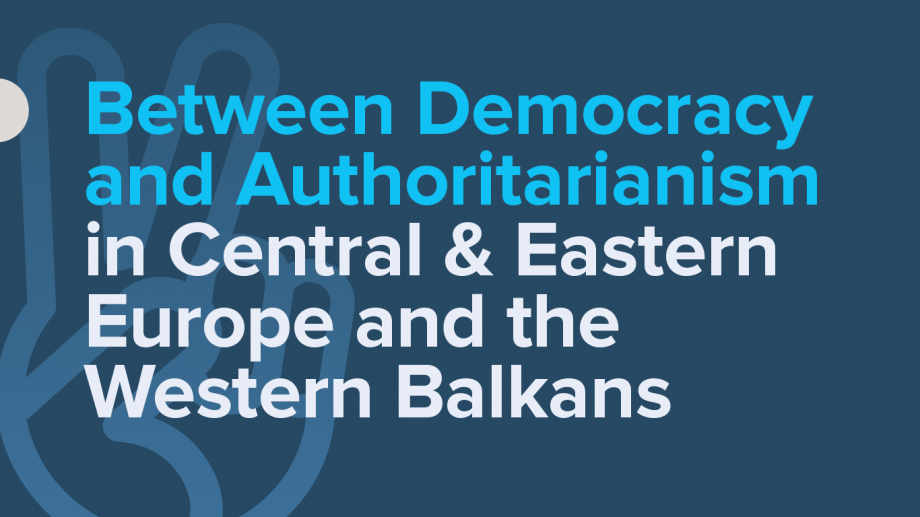Democracy and Authoritarianism in CEE & Western Balkans: Who is winning?

The ‘democratic experiment’ has proven rather resilient in Central & Eastern Europe (CEE) and Western Balkans, persisting over 30 years in conditions that have, notably, been at times inhospitable. The democratic journey that continues to be undertaken by Bulgaria, Czechia, Hungary, Montenegro, North Macedonia, Poland, Romania, Serbia and Slovakia indeed has been an arduous one and far from the fairy tale story, some envisioned. Despite this, the commitment of these two regions to democracy defined as a system based on human rights, equality, freedom and rule of law remains high, at 78%.
These transitions and the volatility of the globalizing world are often perceived in stark juxtaposition against the idealized ‘stability’ of past regimes. The idea that there is a viable alternative to democracy, consequently, has become alluring to a significant subset of the population – 1/3 of all respondents across the surveyed countries. In a truly democratic system, such preferences need to be acknowledged. This, however, is not to say that they need to, wittingly or unwittingly, be encouraged.
This report aims to shed light on where democratic strengths and vulnerabilities lie according to the perspective of people living in CEE and the Western Balkans and provide recommendations for democratic actors to navigate these often-clashing perceptions between democratic and authoritarian sympathies.
Main findings:
- 78% of people in the CEE & Western Balkan regions see democratic governance understood as a system based on equality, human rights, freedoms and rule of law, as good for their country
- One-third of the populations living in the CEE and Western Balkans sympathise with the authoritarian style of governance
- Authoritarian sympathisers have a higher propensity to believe in COVID-19 related conspiracy theories
- The robust support for democratic governance contrasts with an overall low level of trust in state institutions, averaging 42%, including for head of state (usually a president), government, political parties and the judiciary
- Support for LGBT+ rights is higher among those who do not perceive migrations as a threat & generation of young adults
Read more in the report below.
